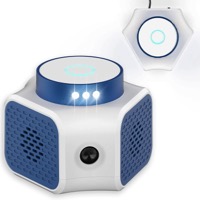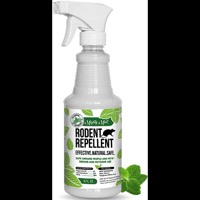Rat Repellents
How to get rid of Rats

By Jess Simmonds, Expert Reviewer for Repellent Guide
published: Feb 05, 2018 | updated: Feb 08, 2018
Rat infestations in homes often occur in attics, cellars, under porches and in out houses or sheds. What are rats looking for? well a secure place to nest and a nearby source of food. That's why our houses are so attractive to them, generally they are not very scared of humans and infact thrive in the relative comfort of our surroundings. Both Black and Brown Rats have been considered as pests for centuries, and have been implicated in the spread of very serious diseases including the bubonic plague.
Why are rats a problem?
Rats certainly have a bad reputation and rightly so - being both disease carrier and home destroyer.
Diseases
Rats are known to carry some pretty serious diseases and can spread them to humans in some cases through the feces, urine and saliva they leave behind.
- Hantavirus Pulmonary Syndrome or HPS is spread though rat urine, droppings and saliva, and is a potentially fatal disease.
- Salmonella can be passed to humans when rat droppings contaminate food. Your household pets are also at risk.
- Leptospirosis or Weils disease is a bacterial infection that can be passed to humans through bites or when rat urine enters broken skin. Leptospirosis can cause both liver and kidney damage, it's first symptoms are flu like including chills and head aches.
- Rat bite fever is an infection caused by the Streptobacillus moniliformis bacterium which is carried in rat saliva.
- Tapeworms can be passed to humans through contaminated food.
- Murine Typhus caused by the bacteria Rickettsia typhi can be transmitted to humans via a rat flea bite.
- Bubonic Plague can also be passed to humans via rat flea bites.
Be aware that rats may contaminate your food supplies with feces and urine, look out for signs of damage to food packaging and throw away any potentially contaminated food.
Property Damage
Rats breed quickly (up to five times per year) and love to make their nests in warm, enclosed spaces, such as in the wood work of a home or other structured dwelling. It’s important to keep rats from nesting and inhabiting an area as they will soon overrun any area they inhabit and cause an infestation. Black rats are infact one of the world's worst invasive species.
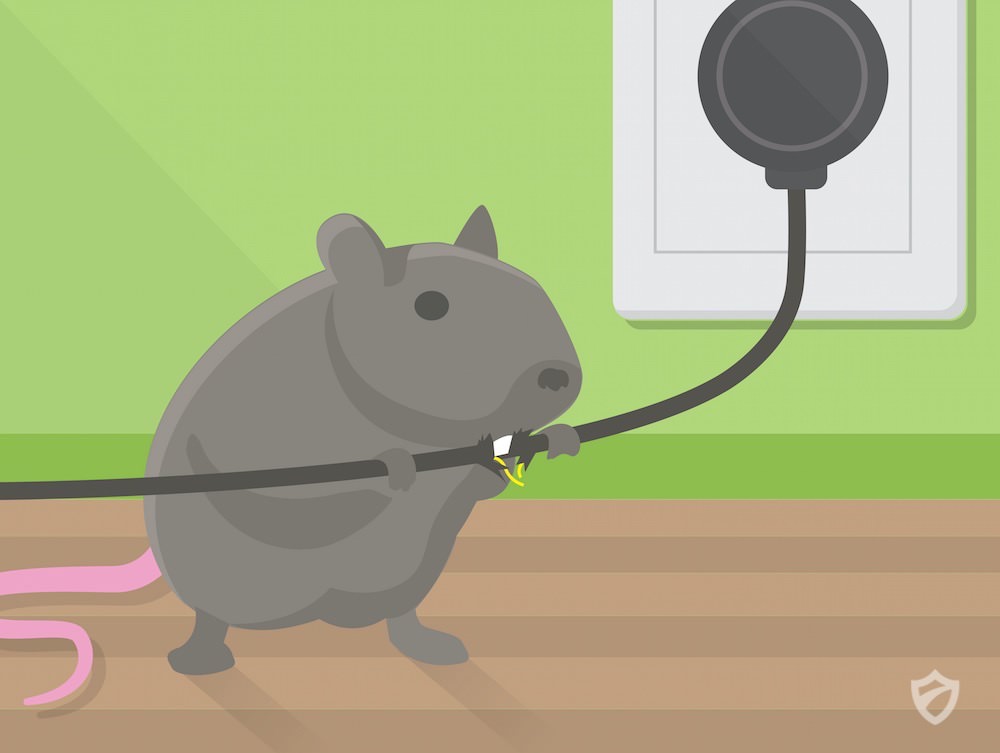
The first signs of a rat infestation are commonly gnawing on electical wiring, pipes, woodwork and food packaging. The chewing of electrical wiring sometimes leaving it with out insulation and bare wiring is common cause of electrical fires. They can also cause damage by gnawing on wood making new access holes to their hide away.
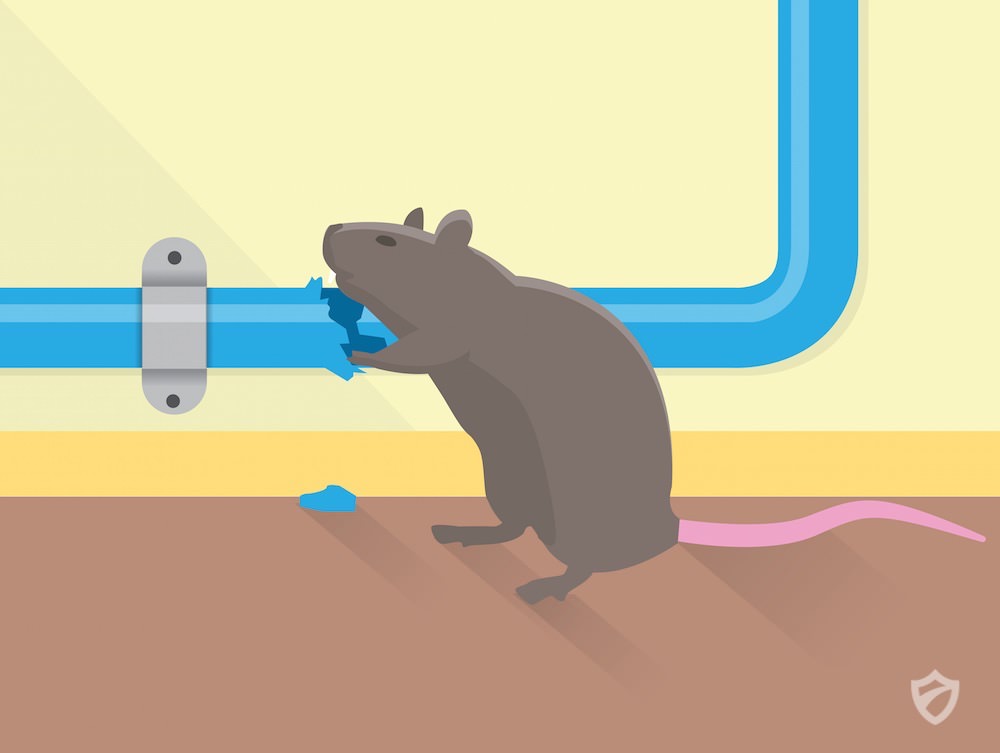
Getting Rid of Rats
The first steps in erradicating your rat infestation should be:
Remove all food sources
If rats have access to your trash or food in your kitchen they will always find a way to get back for more easy pickings. Make sure that all food in your kitchen is secured in plastic containers and also maintain a clean kitchen with no food scraps laying around.
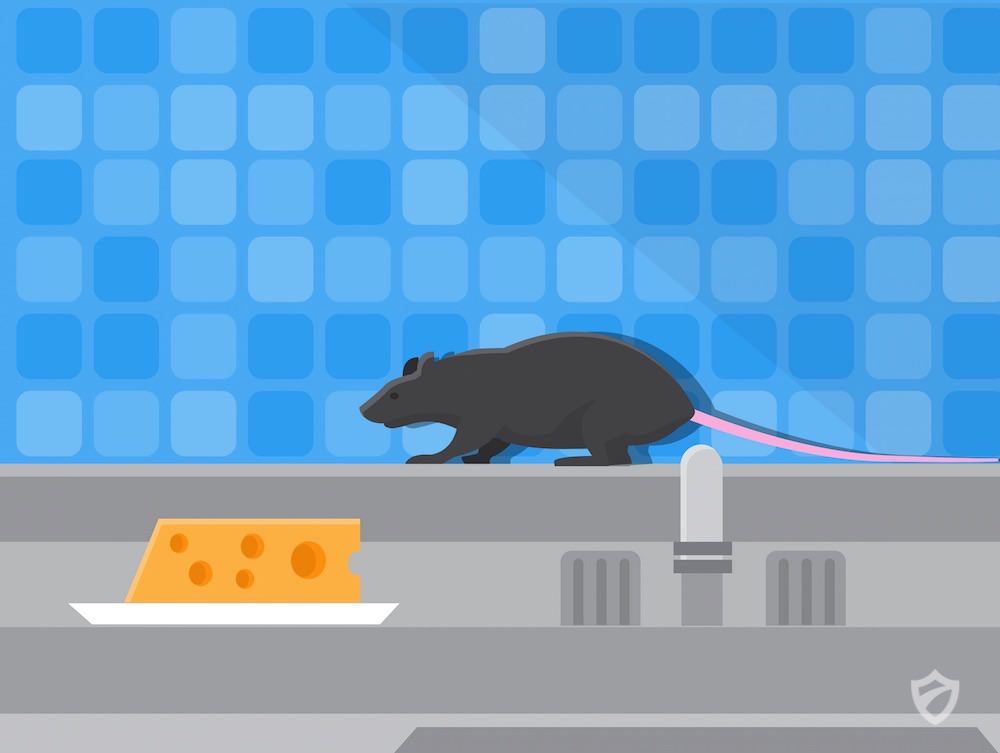 Ensure your food waste is secured in the trash / rubbish bins - this may mean buying a more robust waste bin. Also move waste bins as far from your property as possible. If you have a bird feeder - again make sure you clean the ground under it and if possible position it away from your home. Bird food can be very attractive to rats in the winter and draw rats to your home.
Ensure your food waste is secured in the trash / rubbish bins - this may mean buying a more robust waste bin. Also move waste bins as far from your property as possible. If you have a bird feeder - again make sure you clean the ground under it and if possible position it away from your home. Bird food can be very attractive to rats in the winter and draw rats to your home.

Block all access holes
This is most important - look for any access holes into your property and block them with mesh wire and a builders filler putty. Rats can squeeze through suprisingly small holes - make sure you block any hole larger than 1/2 inch. Blocking access is essential to keeping rats away.
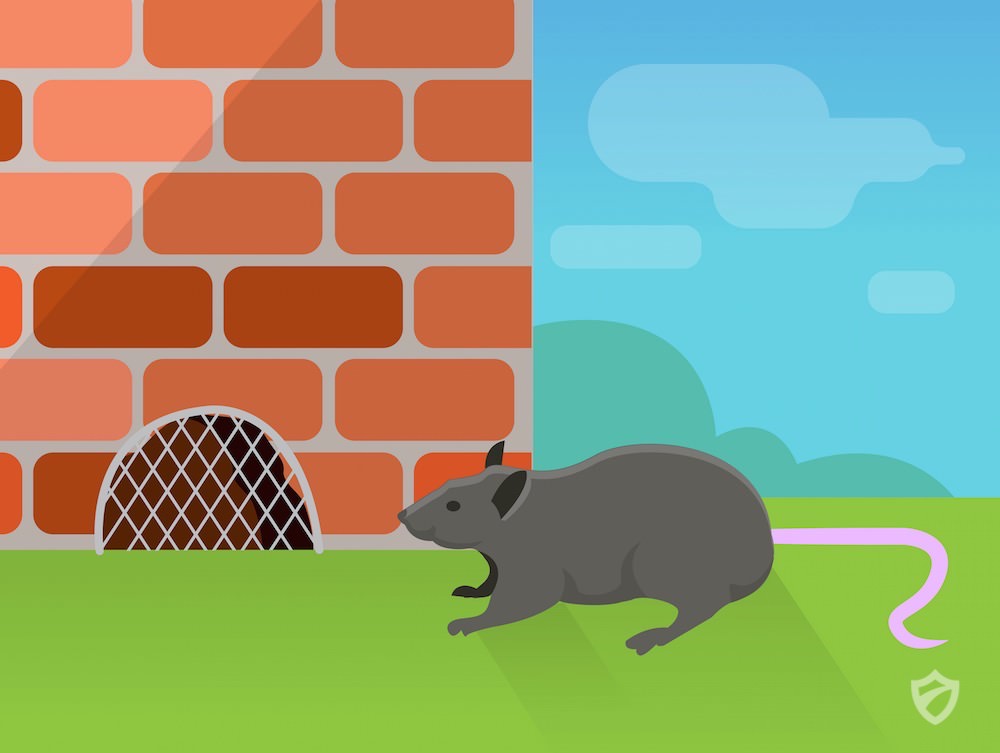
Repellents, Poisons and Traps
Once you have removed food sources and blocked all access holes on your property, you may consider using repellents, poisons and traps to remove the infestation.
Repellents
Be aware that the effectiveness of repellents will depend on proper usage and your particular situation. If you have an existing infestation then you have rats that already consider your property as their home. For them to leave and stay away you need to make your home extremely unattractive for them. Slightly unpleasant scents and irrating sounds often won't be enough to make them look for a home else where. You need to really make their stay unwelcome!
Certain rat repellents will use the sense of smell and the fear instinct to repel rats or to discourage them from inhabiting certain areas. Powders and pellets can be spread around that are infused with the scent of a predator’s urine, such as a fox or badger. This will ignite the fear instinct in a rat, who will think the area has been claimed by a predator and will not return. This type of rat repellent must be used on a regular basis.
Ultrasonic Repellers
Another humane approach to prevent rats from occupying a certain area or to chase them out of a current one is to use an electronic rat repellent device. These ultrasonic repellers use a high decibel signal that rats cannot tolerate and are relatively inexpensive to purchase. The ultrasonic sound is inaudible to us humans. I would say 50% of ultrasonic repeller users are finding they work for them and an equal number find them of no use. Be aware that they won't work overnight - you will need some patience and to wait at least 3-4 weeks before deciding if they have been effective.
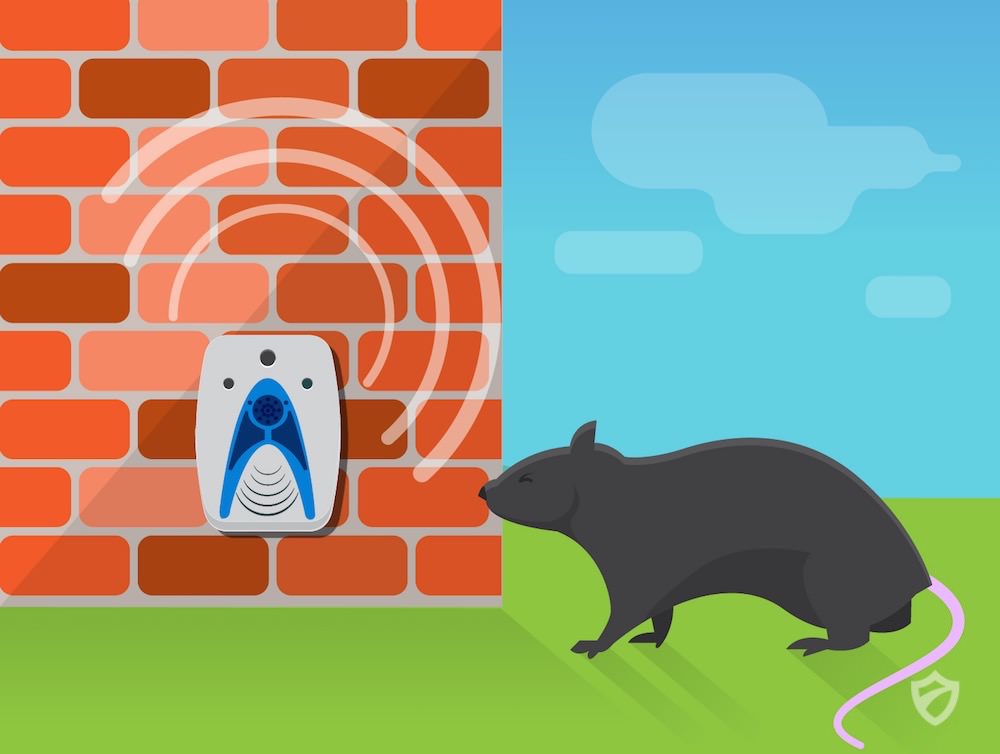
Scent Based Repellers
There are some natural scents that can be unpleasant to rats - but be aware you would need to apply the scents in copious amounts right where the rats are nesting. Rats won't mind hanging around in these scented areas unless it's right where they nest. There are both some home grown methods and commercial scent based repellers.
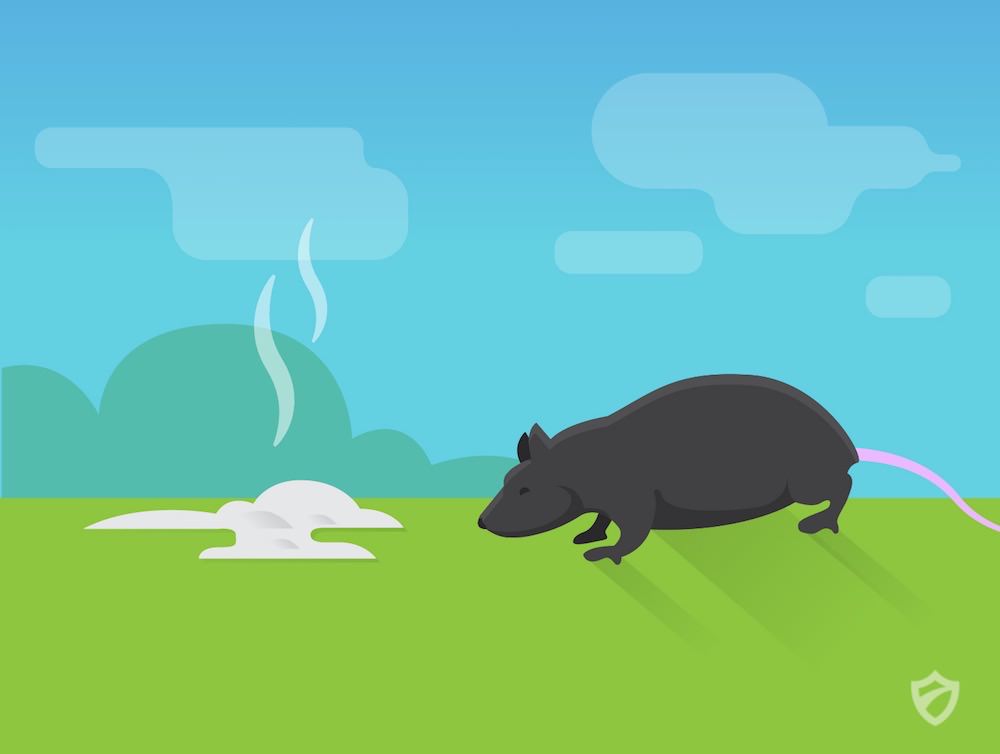
Peppermint Oil
Not pepper mint leaves - but a concentrated pepper oil. Soak cotton balls or old rags in peppermint oil and place them right where the rats are nesting or frequenting. Make sure the smell is pugent - a slight smell won't be enough to put off a rat.
Ammonia
Soak rags in pure ammonia and place them right where that rats are nesting, repeat at least once per week as the ammonia smell will fade quickly.
Rat Poison
We've all heard of it and some of us have tried it - yes rat poison works to get rid of rats. But what's the downside?
- Often the rat will die in your house - in a wall, under floor boards or in your attic. Often in places you cannot access - and then you will suffer the stench of a rotting carcass for weeks or even months to come.
- And if the rat dies in an accessible area? what if your pet dog or cat decides to have a chew on the fresh carcass - you run the risk of losing your pet to the poison too!
- Lastly what if your pet or even child finds the rat poison? the results are unthinkable.
Rat Traps
Ok so rat traps seem like a safer way to rid your home of rats, they are but there are some points to consider.
- If the trap doesn't kill the rat then you will need to do it yourself - sometimes a messy and unpleasant proposition.
- Make sure you wear thick gloves when handling a rat (even if it's a dead one).
Types of Trap
There are several types of trap.
Traditional spring traps that break the rats neck with a sprung mechanism.
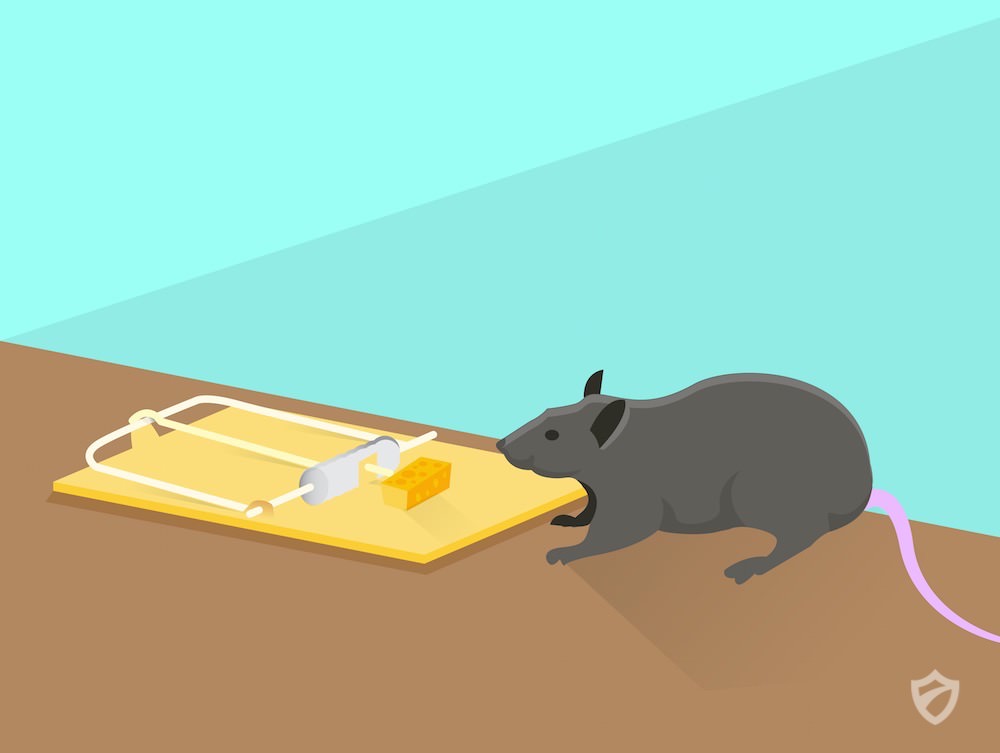
Cage traps that rats cannot escape (you'll have to deal with the live rat).

Electrocution traps - these run off a mains supply and apply a fatal shock to the rat as it enters the trap.

Sticky traps that use a glue the rats cannot escape - if left long enough the rat will die from lack of water.
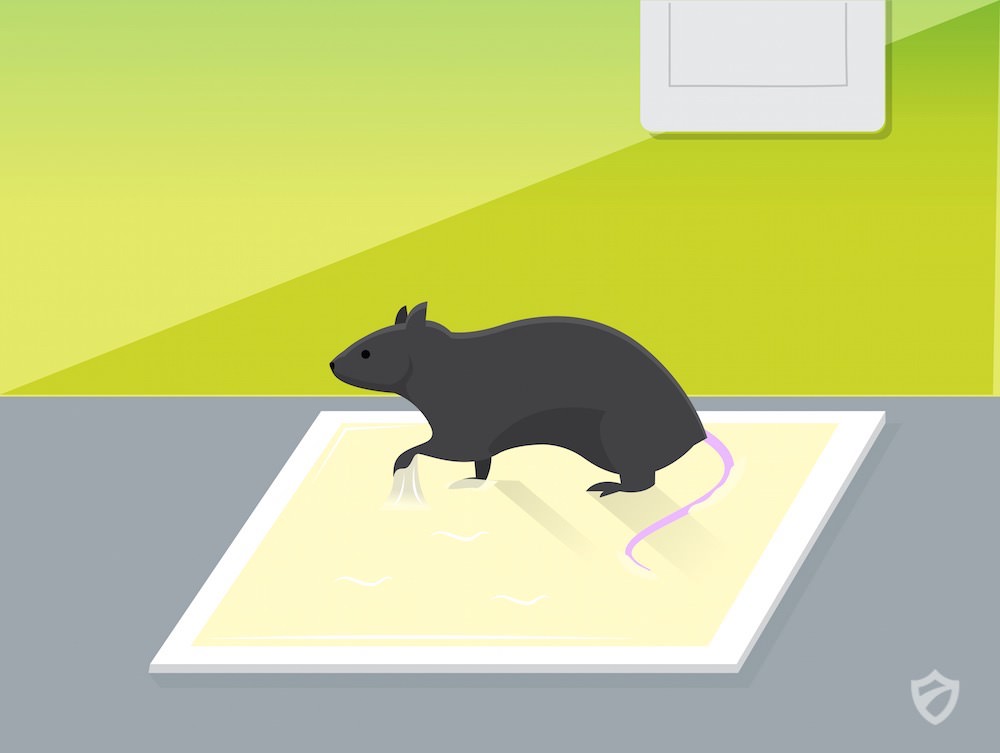
You can bait rat traps with the traditional cheese, bread and they love peanut butter!
Cat deterrents
If you have a cat or are considering one to act as a rat deterrent - then yes they can be effective in either catching rats or be enough to deter them from your garden. Cats are not effective though in the home as rats pass through holes that your cat won't be able to fit through.
If you don't have a cat but your neighbour does then consider asking them for contents of their cat litter trays - and place it as a natural rat deterrent around your home. The smell of the cat urine will act as a natural rat repellent.



